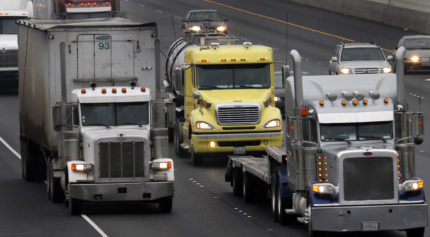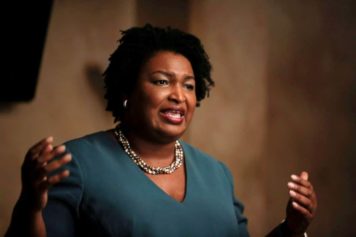For many years, high medical bills have been a leading cause of financial distress and bankruptcy in America. That pressure may be easing ever so slightly, according to a survey released earlier this week by the Centers for Disease Control and Prevention.
But 1 in 5 Americans still face hardships due to medical costs — and African-Americans continue to be the hardest hit.
A poll by NPR, the Robert Wood Johnson Foundation and the Harvard School of Public Health found that 24 percent of African-American families say they’ve had problems paying for needed prescription drugs. The poll is part of NPR’s ongoing series, “The View From Black America.”
Mike Jackson is one of those people. Jackson, 52, lives in Oklahoma City and works for a major insurance company. He has high blood pressure and hypertension, and has been diabetic for 15 years.
Treating these chronic health problems isn’t cheap. Jackson’s medical bills add up to nearly $500 a month. Jackson says: “Diabetes alone — just the two medications alone for diabetes would have run $325 a month.”
That’s “would have,” because Jackson couldn’t pay. This time last year, he was laid off, got divorced and lost his health benefits.
He worried that he wouldn’t be able to afford the insulin he needs to control his diabetes, so he started cutting back.
“Instead of taking 60 units twice a day, I was taking 30 units twice a day,” Jackson told NPR. “The idea behind that was if I watched what I would eat and then stay with the 30 units — I would keep my blood sugar down enough that hopefully it would not be much of a problem.”
But cutting back on insulin for eight months did cause problems. Jackson developed numbness in his foot and toes, and nerve damage in his eye — all complications of uncontrolled diabetes. “My left eye actually shut; wouldn’t open,” Jackson says. “The muscle for my eyelid won’t open.”
An ophthalmologist gave Jackson a discount, but Jackson is still struggling to make payments.
In response to an NPR Facebook callout, 30-year-old Ashley Liggins of Fort Worth, Texas, wrote that she’ll never forget being without health insurance and having to decide between medication for high blood pressure, gas for her car, or food for the week.
Like Jackson, Liggins also tried to stretch out the medication she had by reducing the dose and even borrowing pills from her mother. “I was really worried,” says Liggins, who now works in the financial services industry. “High blood pressure runs in my family.”
Read the rest of the story on NPR


